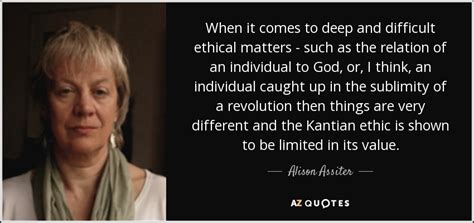A Quote by George Henry Lewes
Individual experiences being limited and individual spontaneity feeble, we are strengthened and enriched by assimilating the experience of others.
Quote Topics
Related Quotes
Faith is precisely the paradox that the single individual as the single individual is higher than the universal, is justified before it, not as inferior to it but superior - yet in such a way, please note, that it is the single individual who, after being subordinate as the single individual to the universal, now by means of the universal becomes the single individual who as the single individual is superior, that the single individual as the single individual stands in an absolute relation to the absolute.
There are only individual people, different individual people, with their own individual lives. Using one of these people for the benefit of others uses him and benefits the others. Nothing more. What happens is that something is done to him for the sake of others. Talk of an overall social good covers this up.
As Americans, we're raised with this idea of, 'We're number one.' As an individual, you absorb and you consume until you skyrocket to the top with your money and your whatever. That's not my philosophy. My philosophy is quite the opposite in that there's limited space, we have limited resources, and so it's not about the individual.
As society is only possible if everyone, while living his own life, at the same time helps others to live; if every individual is simultaneously means and end; if each individual's well-being is simultaneously the condition necessary to the well-being of others, it is evident that the contrast between I and thou, means and end, automatically is overcome.
Individuals understood in relational terms cannot be conceived as fully separate from their communities. Others in one's community may already be a part of the self. This conception of the person as overlapping in identity with others has normative implications for what constitutes the good of the individual and how that good relates to the good of others. One's relationship with others can form a part of one's good as an individual, such that one can have a compelling interest in the welfare of these others and in one's relationship with them.
It is possible that an individual may be successful, largely because he conserves all his powers for individual achievement and does not put any of his energy into the training which will give him the ability to act with others. The individual acts promptly, and we are dazzled by his success while only dimly conscious of the inadequacy of his code.
Groups do not have experiences except insofar as all their members do. And there are no experiences... that all the members of a scientific community must share in the course of a [scientific] revolution. Revolutions should be described not in terms of group experience but in terms of the varied experiences of individual group members. Indeed, that variety itself turns out to play an essential role in the evolution of scientific knowledge.









































